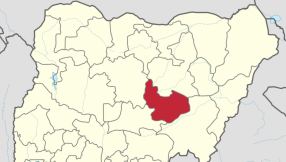
This year marks 700 years since the birth of John Wycliffe, whose translation of the Bible would allow English speakers to read God's words in their native tongue for the first time. However, the celebration of this historical event will also serve to draw attention to the reality that a fifth of the world still lacks access to the Bible in their first language.
While there has been much progress in worldwide Bible translation, there is still a great deal of work to be done. Around 1.5 billion people speaking over 6,000 languages are yet to have seen a Bible that is written in their most familiar tongue, but Wycliffe Bible Translators is working to ensure all people have access to the Bible.
Thought to have been born in 1324 in Hipswell, Yorkshire, Wycliffe was a theologian, scholar, and reformer. He remains a key historical figure today, and the impact of his legacy is still felt in the lives of countless people in the present day.
His conviction that everyone should be able to read the Word of God for themselves, rather than rely on the church's messaging, saw him stand firm against the full authority of the church in his mission to translate the Bible from Latin into English.
After his death, the 'Morning Star of the Reformation' was declared a heretic, his bones were dug up and burnt, and his ashes were scattered in Leicestershire's River Swift. However, there was no way of putting out the fire he had lit, and it soon spread across the world, inspiring others to do their own translations, including Martin Luther, the father of the Reformation, who translated the Scriptures into German.
"John Wycliffe argued that the Bible should be accessible to all, regardless of social status or education. His courage and vision continue to inspire our work today. There is now more Bible translation work in progress than ever before," James Poole, Wycliffe Bible Translators' Executive Director, said.
"We have a historic opportunity to get closer to the vision of everyone being able to know Jesus through the Bible."
The past year has seen record-breaking rates of Bible translation. A new Bible was launched at a rate of one per month and a New Testament at one a week. Translation work in a new language was started at a rate of one per day.
One modern-day John Wycliffe is Komi Sena, a translator of Ifè, a Niger–Congo language. The Ifè New Testament has been completed despite a number of setbacks, and has led to a surge in local churches.
"Translating the Bible is so important because many people don't understand French, so they are not able to read and understand the Scriptures. And it does not change their lives when they do not understand it," Komi said.
"Translation of the Bible also enables nonbelievers to hear the good news in their language."













